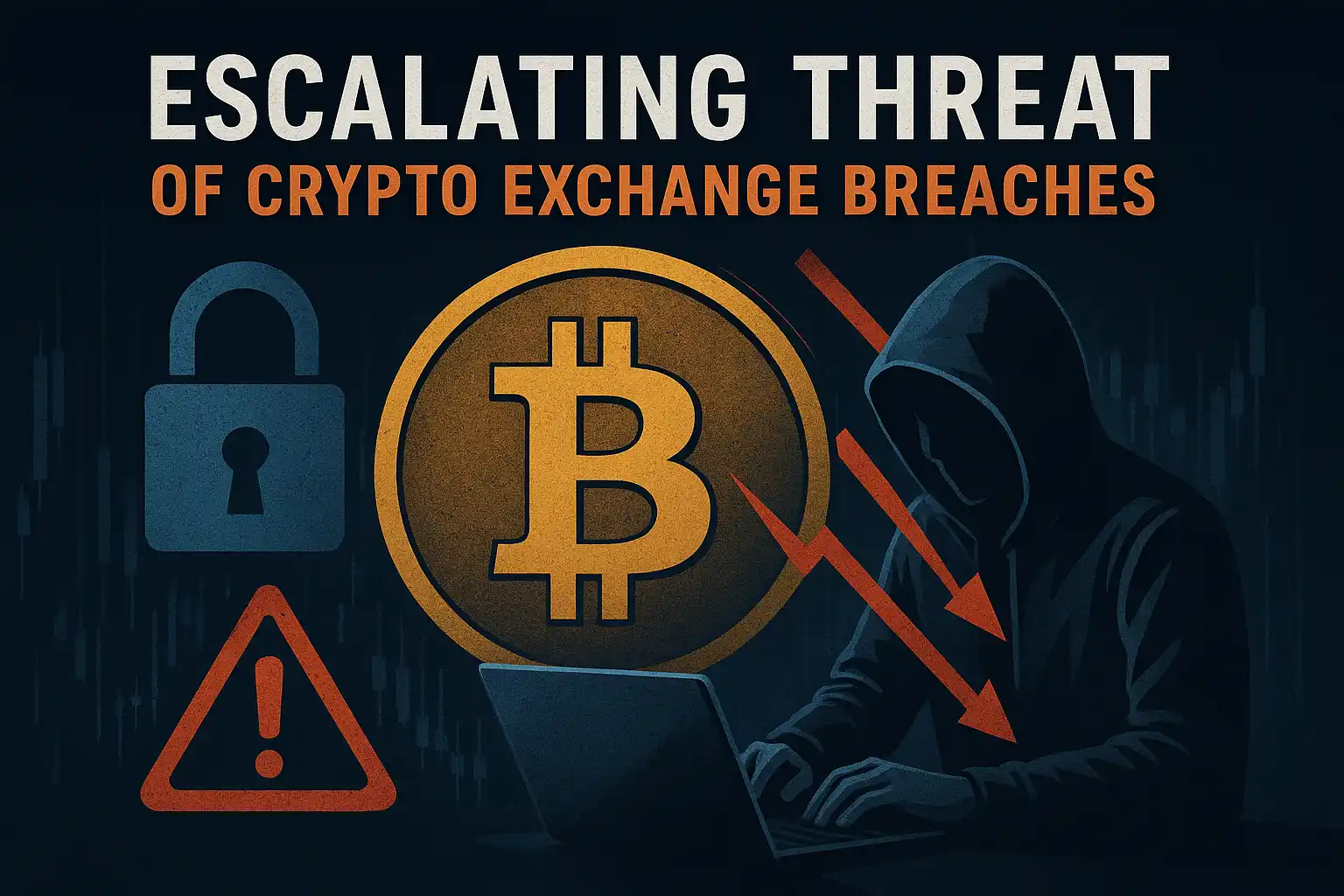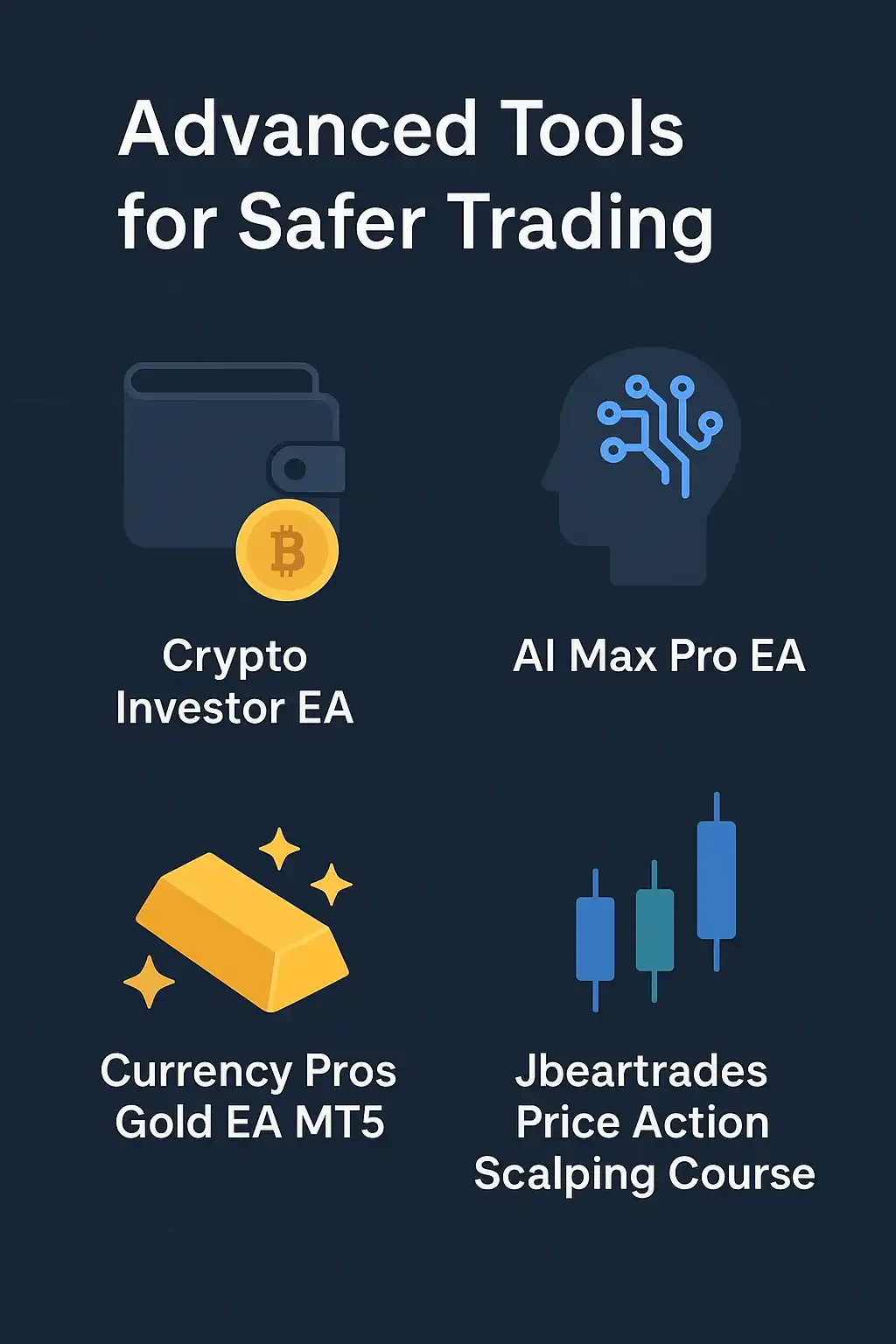Crash-Proof EA Templates You Can Use in 2026
Automated trading carries risks, but crash-proof EA templates protect capital and limit losses. These templates...

Cryptocurrency exchanges have transformed global finance, allowing traders, investors, and institutions to access digital assets with ease. Yet, alongside this growth, a darker reality has emerged: the escalating threat of crypto exchange breaches. These attacks target centralized exchanges, wallets, and even decentralized finance (DeFi) platforms. With billions of dollars stolen over the past decade, breaches have become one of the most serious risks in the digital trading ecosystem.
Unlike traditional banks, most exchanges operate without uniform global regulation. Security measures vary widely, and attackers exploit weak points with increasing sophistication. For forex and crypto traders, the implications go beyond stolen funds. A major breach can shake confidence in digital assets, move currency values, and even influence broader financial markets.
In this article, we’ll explore the growing risks of crypto exchange breaches, highlight lessons from past incidents, review how regulatory and technological forces are responding, and examine how traders can protect themselves in this evolving landscape.
Crypto exchanges attract hackers for several reasons:
These factors combined make exchanges far more vulnerable than traditional banks.
Understanding past breaches is key to grasping the scope of the threat.
Each incident had ripple effects across the entire digital asset ecosystem, impacting trader confidence and influencing regulations.
When exchanges are hacked, traders face multiple risks:
For forex traders who also operate in crypto markets, these breaches increase systemic risks. A major hack can push investors toward traditional currencies, driving volatility across USD, EUR, JPY, and emerging market pairs.
Regulators are increasingly focused on crypto security:
The Bank for International Settlements (BIS) and International Monetary Fund (IMF) have both warned that crypto security risks threaten global financial stability. Stronger rules are likely ahead, and exchanges that fail to comply risk being shut out of major markets.
Exchanges are investing heavily in new technologies to prevent breaches:
For traders, using exchanges that adopt such technologies is essential for safeguarding funds.
While exchanges carry much of the security responsibility, traders must also take action:
For retail traders using automated systems, risk management becomes even more important. Tools such as Deep Scalper EA V5 MT4 can help balance exposure while trading volatile assets like crypto pairs.

As breaches rise, many traders turn to automated strategies and educational resources to protect themselves. At GregForex.com, several tools align well with the current environment:
By integrating these tools, traders gain both flexibility and resilience.
Although forex is more regulated than crypto, the two markets are increasingly linked. A breach at a major exchange can lead to capital flight from crypto into forex safe havens like the U.S. dollar or Swiss franc. This crossover effect highlights why forex traders cannot ignore crypto risks.
Learning from crypto breaches can improve forex strategies. For example, understanding liquidity crises in exchanges can help forex traders anticipate similar pressures in currency markets. Articles on GregForex discussing regulatory tightening and systemic risks are valuable resources for building this knowledge.
Looking ahead, the battle between hackers and exchanges will intensify. While new security technologies emerge, attackers constantly evolve. Key trends include:
Traders who prepare for this evolving landscape will be better positioned to thrive.
Security risks in crypto trading evolve daily. Keeping informed is critical. Blogs at GregForex cover topics like:
These insights help traders navigate risks more effectively and develop safer long-term strategies.
Why are crypto exchanges often hacked?
They hold billions in assets, operate globally with uneven regulations, and attract sophisticated hackers seeking quick profits.
What is the biggest exchange hack so far?
Mt. Gox in 2014 and Coincheck in 2018 remain among the largest, each losing hundreds of millions of dollars.
Can traders recover funds lost in a breach?
In most cases, recovery is limited unless exchanges have insurance or regulators enforce compensation.
How can traders protect themselves?
Use hardware wallets, diversify across exchanges, enable security features, and avoid leaving funds idle on platforms.
Do breaches affect forex trading?
Yes. Large breaches can trigger shifts into traditional currencies, influencing forex volatility and safe-haven flows.
The escalating threat of crypto exchange breaches is reshaping the financial landscape. With billions at risk, traders must adapt by using secure platforms, diversifying strategies, and staying educated. Regulators and exchanges are stepping up their defenses, but responsibility also falls on individuals to safeguard assets.
By relying on advanced trading tools like Crypto Investor EA, diversifying into safe havens with Currency Pros Gold EA MT5, and enhancing skills through courses like Jbeartrades Price Action, traders can navigate this high-risk environment with greater confidence.
Crypto exchanges will remain prime targets for hackers, but informed, prepared traders can turn these challenges into opportunities.
Jack Henry
09/09/2025
Automated trading carries risks, but crash-proof EA templates protect capital and limit losses. These templates...
Understanding major and minor currency pairs is the first step in forex trading. Understanding major...